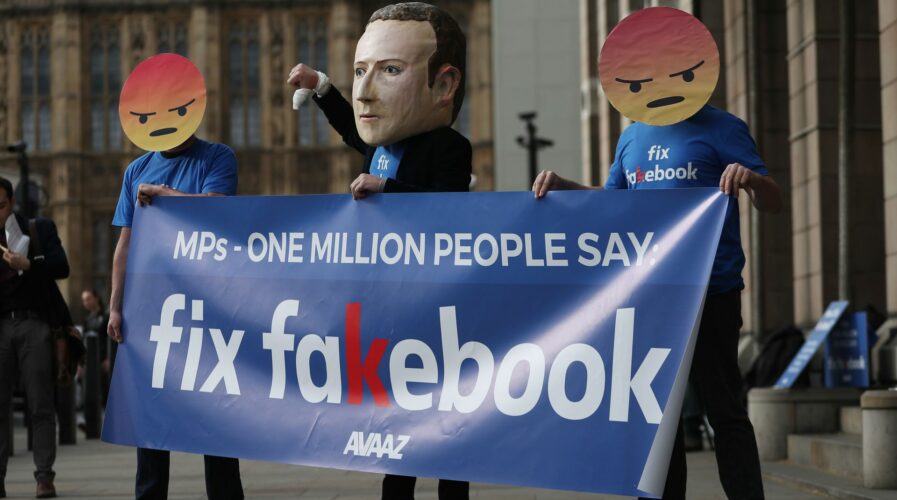
Web3 doesn’t exist yet but what is all the hype about? Source: AFP
Web3 doesn’t exist yet but what’s all the hype about?
- It might just be a third stage of the internet’s development — but everything is uncertain for now.
- Web3 basically refers to a decentralized online ecosystem based on the blockchain.
- Platforms and apps built on Web3 won’t be owned by a central gatekeeper, but rather by users, who will earn their ownership stake by helping to develop and maintain those services.
Web3 — also known as Web 3.0 — is a term that has been garnering much of the online world’s attention lately. Coined in 2014 by Gavin Wood, it fundamentally refers to the next iteration of the internet that promotes decentralized concepts mainly to reduce dependency on Big Tech like Meta, Google, and Amazon. It is also based on the idea that blockchain and digital tokens can foster a decentralized internet.
In a 2014 blog post, Wood reckoned how “entrusting our information to organizations, in general, is a fundamentally broken model.” He basically sold the idea that the future of the internet is a place where ownership and power are more widely distributed.
To be precise, Wood’s vision is based on transparent digital ledgers known as blockchains — the technology that underpins cryptocurrencies — and with that, Big Tech will be rivaled by more democratic forms of internet governance where the user will get a say. “Web 3.0, or as might be termed the “post-Snowden” web, is a re-imagination of the sorts of things we already use the web for, but with a fundamentally different model for the interactions between parties.”
Explaining further on this, he added, “Information that we assume to be public, we publish. Information we assume to be agreed upon, we place on a consensus ledger.
“Information that we assume to be private, we keep secret and never reveal. Communication always takes place over encrypted channels and only with pseudonymous identities as endpoints; never with anything traceable (such as IP addresses).”
In short, Wood said it is an internet where the users engineer the system to mathematically enforce their prior assumptions, “since no government or organization can reasonably be trusted.”
How is Web3 different from its preceding concepts?
The idea, from general understanding, stems from the idea of how the internet has been functioning. It started with Web 1.0, the first World Wide Web that took off in popularity through web browsers in the 1990s, followed by Web 2.0 a decade later.
Web 2.0, the era of the internet we are currently in, saw the birth and rise of mega-platforms like Google and Facebook. With Web 2.0, there was the rapid development of easy-to-use tools that let anyone create content online.
Eventually, people began realizing that their personal data was being harvested by tech giants (without their consent) to create tailored advertisements and marketing campaigns.
Take Facebook for instance — the company, now known as Meta, has had the spotlight shone on it innumerable times for breaching data privacy laws. In 2019, it was hit with a US$5 billion fine – the largest penalty ever issued — by the Federal Trade Commission (FTC.)
So the idea of Web3 brought by Wood is indirectly indicating that there is a massive failure of technology in the current Web 2.0, including failure of governance and regulation as well as policies surrounding competition.
What Wood is suggesting as a solution is not for better regulation; instead, he reckons there needs to be a new layer of technology, because regulatory failures are inevitable.
Essentially, the decentralized nature of Web3 will (theoretically) allow users to own and retain control of their own data, thereby keeping it out of the hands of tech giants.
Hark the words of critics
So far, prominent figures like Twitter’s Jack Dorsey have decried the buzzy tech trend, telling consumers to be wary and dismissing it as a tool for venture capitalists hyping cryptocurrency.
Tesla’s CEO Elon Musk trolled it by saying, “Web3 sounds like bs.” On the other hand, Tim O’Reilly, the author who coined the phrase Web 2.0 back in 2004, also warned it was too early to get excited about Web3.
For now, Web3 is still merely a buzzword that has yet to materialize. While it may not prove to be as benevolent as is hoped, it is as proponents say it, the future–like cryptocurrencies and the metaverse.
READ MORE
- Ethical AI: The renewed importance of safeguarding data and customer privacy in Generative AI applications
- How Japan balances AI-driven opportunities with cybersecurity needs
- Deploying SASE: Benchmarking your approach
- Insurance everywhere all at once: the digital transformation of the APAC insurance industry
- Google parent Alphabet eyes HubSpot: A potential acquisition shaping the future of CRM


